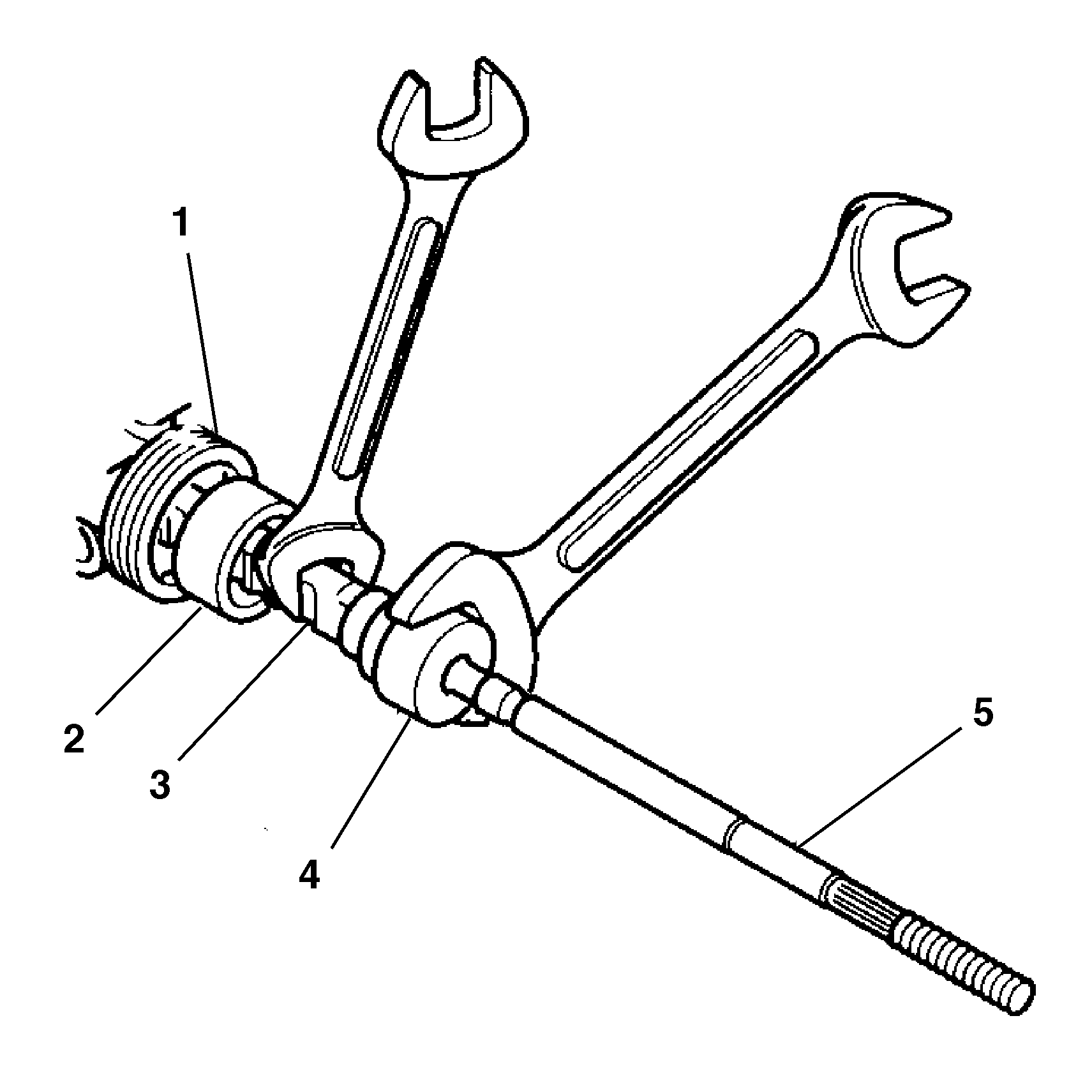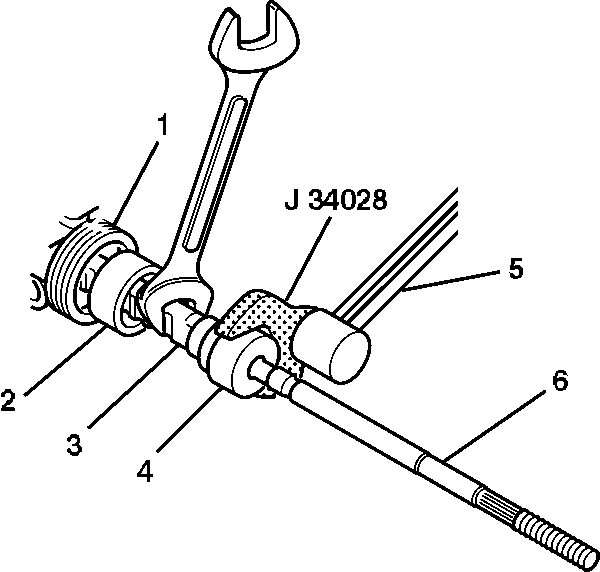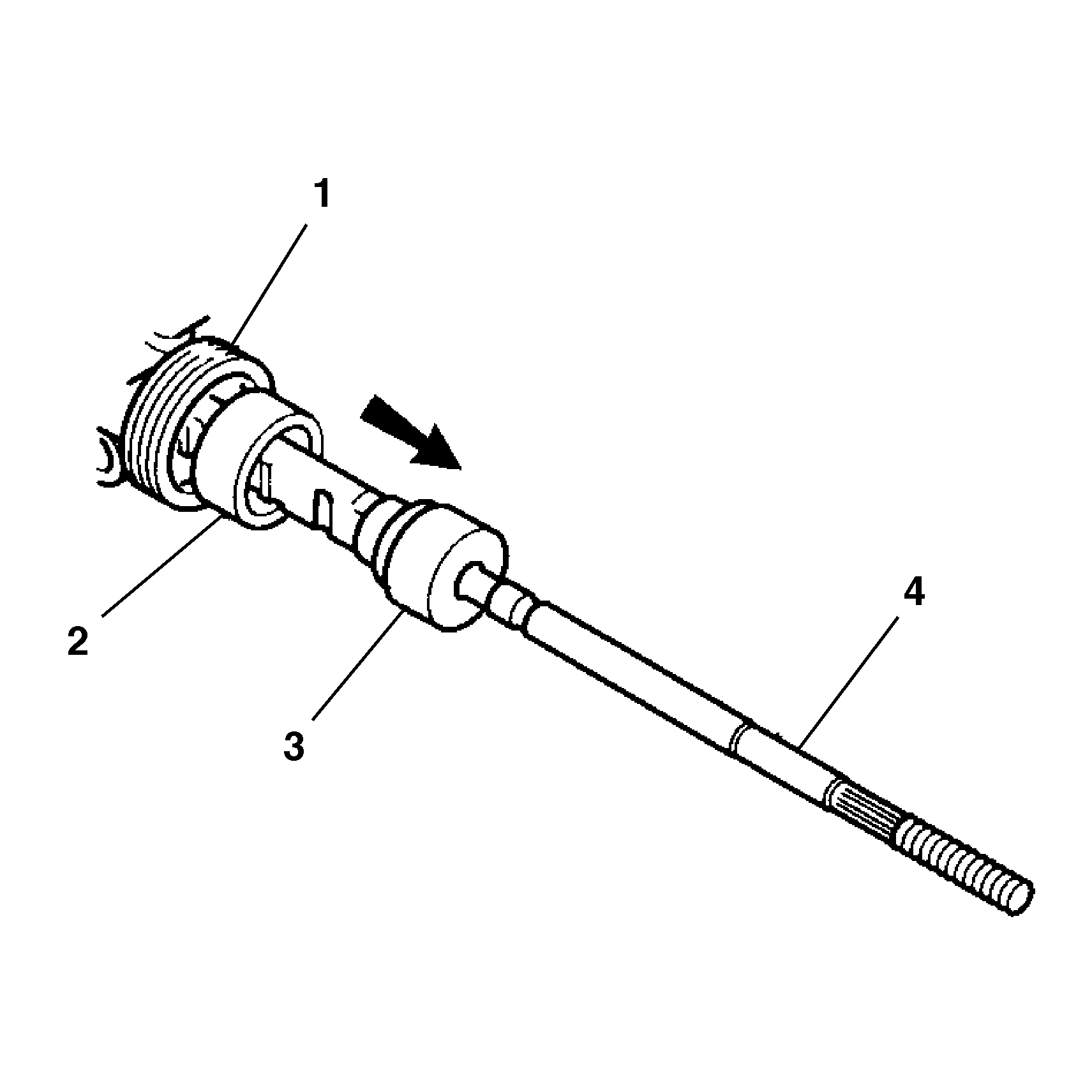Disassembly Procedure
- To remove the rack and pinion boot and the breather tube; refer to Steering Gear Boot and Breather Tube Replacement - Off Vehicle .
- Remove the shock dampener (2) from the inner tie rod assembly (5).
- Slide the shock dampener (2) back on the rack (1).
- Remove the inner tie rod assembly (5) from the rack assembly (1) as follows:

Important: The rack must be held during removal and installation of the inner tie rod to prevent damage to the rack.
| 4.1. | Place a wrench on flats of rack assembly (3). |
| 4.2. | Place another wrench on the flats of the inner tie rod housing (4). |
| 4.3. | Rotate the inner tie rod housing (4) counterclockwise until the inner tie rod (5) separates from the rack (1). |
Assembly Procedure
Important: The rack must be held during removal and installation of the inner tie rod to prevent damage to the rack.
Hold the rack.
- Slide the shock dampener (2) forward onto the rack (1).
- Attach the inner tie rod (6) on the rack (1) as follows:
- Place the piston and steering rack (1) and the inner tie rod (2) in a vise.
- Stake both sides of the inner tie rod housing to the flats on the rack using a hammer and a drift.
- Insert a 0.25 mm feeler gauge (1) between the piston and steering rack (1) and the inner tie rod housing (3). The feeler gauge (1) must not pass between the piston and steering rack (2) and the inner tie rod housing stake.
- Slide the shock dampener (2) over the inner tie rod housing (3) until the front lip of the shock dampener (2) bottoms against the inner tie rod housing (3).
- To assemble the rack and pinion boot and the breather tube; refer to Steering Gear Boot and Breather Tube Replacement - Off Vehicle .

| 2.1. | Place a wrench on the flats of the rack assembly (3). |
| 2.2. | Place a torque wrench (5) on the flats of the inner tie rod housing (4). |
Notice: Use the correct fastener in the correct location. Replacement fasteners must be the correct part number for that application. Fasteners requiring replacement or fasteners requiring the use of thread locking compound or sealant are identified in the service procedure. Do not use paints, lubricants, or corrosion inhibitors on fasteners or fastener joint surfaces unless specified. These coatings affect fastener torque and joint clamping force and may damage the fastener. Use the correct tightening sequence and specifications when installing fasteners in order to avoid damage to parts and systems.
Tighten
Inner tie rod to 100 N·m (74 lb ft).

Important: Make sure the inner tie rod (2) rocks freely in the housing before staking the inner tie rod housing.


